" I don't really want to decentralize"
On the morning of November 8, the National Assembly (NA) continued its question-and-answer session in the 6th session of the 15th NA. Asking questions directly to Prime Minister Pham Minh Chinh, many delegates mentioned that the policy of promoting decentralization and delegation of power in conjunction with resource allocation, improving the capacity of the apparatus and strengthening inspection, supervision and control of power has not achieved the expected results.
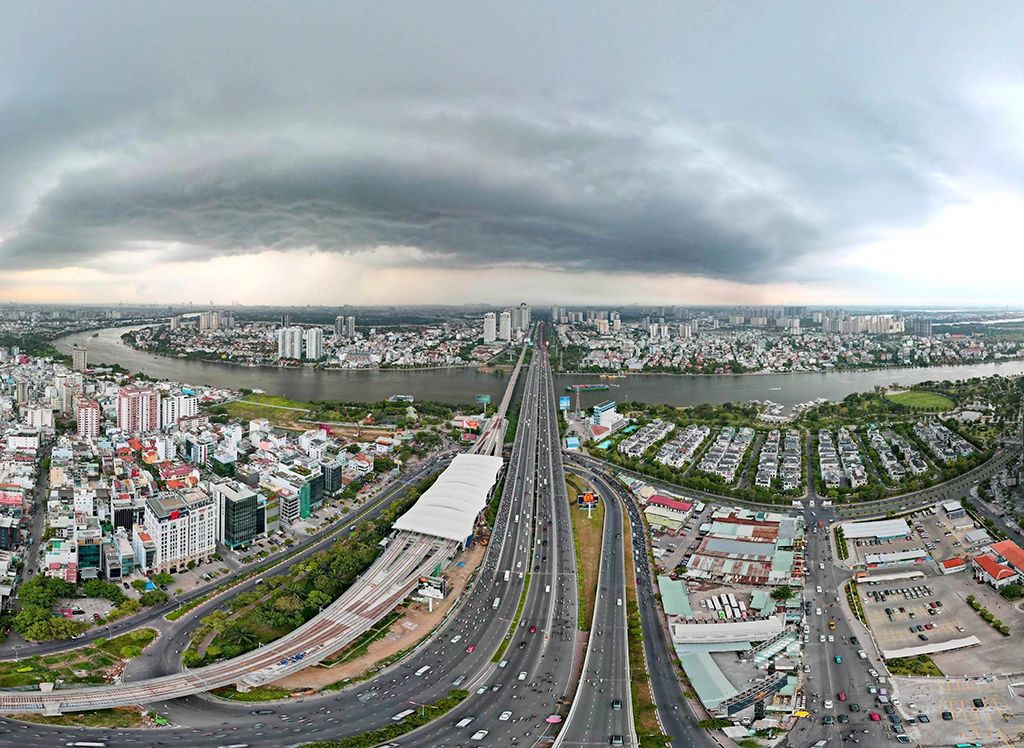
Continuing institutional reform and reasonable decentralization will help localities achieve breakthroughs in infrastructure construction and socio-economic development (In photo: Saigon Bridge area - Metro line No. 1 in Ho Chi Minh City)
Delegate Ly Tiet Hanh (Binh Dinh delegation) reflected that Decree 42 from 2017 is strongly decentralizing when it allows the authorization of localities to appraise projects and design construction estimates for some group A projects, but Resolution 15 in 2021 no longer allows authorization. "There are tourism projects worth over 800 billion VND but low-rise buildings, the construction does not require high technology, so localities are fully capable of appraisal," Delegate Hanh stated.
Responding to the delegates, Prime Minister Pham Minh Chinh admitted that decentralization and delegation of authority in implementation have not met requirements and expectations. The Prime Minister said that the main reason is that existing policies and guidelines have not been thoroughly implemented. Along with that, some agencies and units do not really want to decentralize and delegate authority.
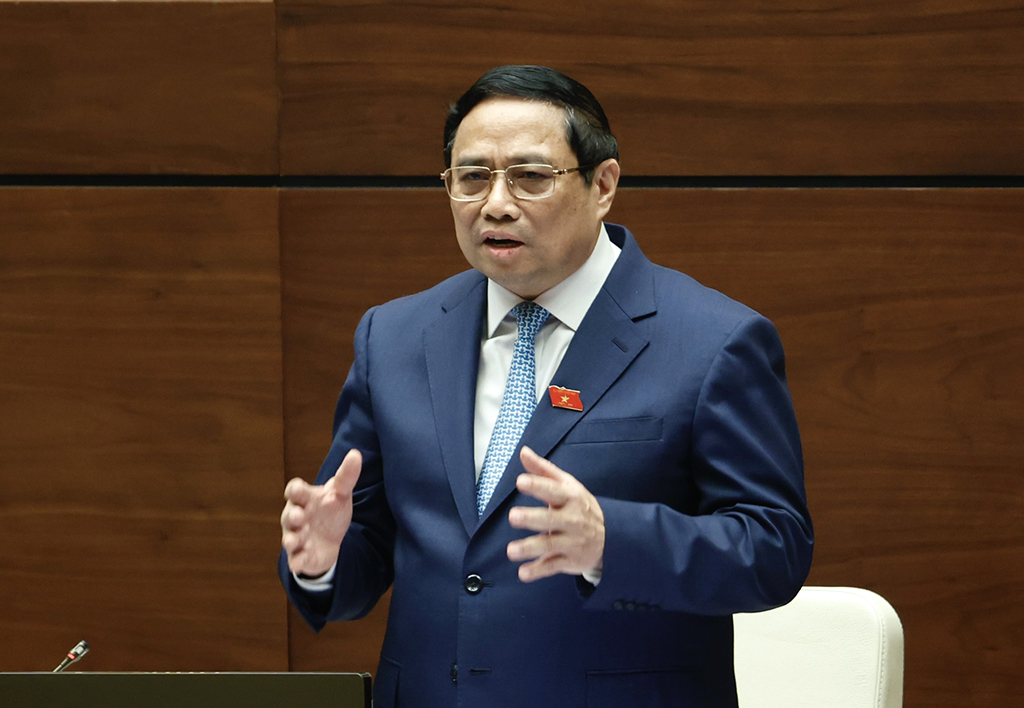
Prime Minister Pham Minh Chinh answers questions on November 8
Prime Minister Pham Minh Chinh
Regarding solutions, the Prime Minister emphasized the need to strengthen leadership and direction of decentralization and delegation of power along with resource allocation, strengthen supervision and inspection, improve the implementation capacity of subordinates, and perfect institutions. "All levels must also be bold in implementing decentralization and delegation of power, limit evasion and shirking," the Prime Minister said. In the report presented to the National Assembly, the Prime Minister affirmed that he will continue to perfect regulations to encourage and protect dynamic, creative cadres who dare to think and act for the common good; at the same time, strictly handle cases of evasion, lack of coordination, shirking of responsibility, slowness, and inefficiency.
Regarding the issue of project decentralization that Deputy Ly Tiet Hanh raised, the Prime Minister said he would review and re-evaluate to see how it is suitable for reality. However, the Prime Minister reiterated that decentralization and delegation of power must improve implementation capacity and increase supervision and inspection. "When decentralizing and decentralizing power, it does not mean assigning tasks to localities or lower levels. We must strengthen supervision, inspection, urging, and support when facing difficulties," the Prime Minister noted.
Administrative procedures are still cumbersome
Many deputies also questioned the Prime Minister on institutional reform, administrative procedures, and removing difficulties for production and business. Deputy Mai Thi Phuong Hoa (Nam Dinh delegation) said that the reform's focus and key points are still unclear; at the same time, administrative procedures are still cumbersome, and the inertia of a number of officials and civil servants still hinders development. Ms. Hoa asked the Prime Minister to give three priority options to overcome the above situation.
Deputy Tran Thi Kim Nhung (Quang Ninh delegation) said she agreed with the Prime Minister's emphasis on resolutely cutting down and simplifying administrative procedures and business conditions that cause difficulties and increase costs for people and businesses. However, quoting Minister of Public Security To Lam at the question-and-answer session about "specific regulations and strong sanctions to cut off backyard business relationships", Ms. Nhung said that the Government and the Prime Minister need to have fundamental solutions to correctly, accurately, and promptly identify the so-called "backyard business relationships", in order to have a basis for designing legal regulations and increasing sanctions to handle this issue.
Responding to the deputies, Prime Minister Pham Minh Chinh said that the issue of institutional reform has been discussed over the past few days. According to the Prime Minister, the Resolution of the 13th National Congress identified three strategic breakthroughs including institutions, infrastructure and human resources. Removing institutions will mobilize resources; developing the infrastructure system will create competitiveness for goods, reduce logistics costs; human resources also play an important role. Therefore, the Prime Minister said that depending on the circumstances and conditions of each stage, whichever is given priority will be chosen according to the principle of reasonableness and harmony.
The head of the Government frankly acknowledged that cumbersome administrative procedures are the cause of increased costs for businesses. In addition, a number of civil servants and public employees are pushing things around and are afraid of responsibility... According to the Prime Minister, it is necessary to strengthen propaganda and education work so that cadres can raise their awareness. At the same time, it is necessary to ensure material and spiritual benefits so that cadres can confidently fulfill their assigned duties. At the same time, ministries and branches need to review procedures in their management fields to drastically reduce them. "The fundamental solution is still related to the sense of responsibility and capacity of cadres in reducing administrative procedures," the Prime Minister acknowledged.
Regarding the issue raised by Deputy Tran Thi Kim Nhung, the Prime Minister said that there have been resolutions and conclusions of the Party and the Politburo. "The current issue is to concretize them for good implementation, on the basis of promoting the responsibility of leaders as well as cadres assigned to perform the tasks," the Prime Minister concluded.
" This term is a pilot"
Previously, on the morning of November 7, when sending questions to the Prime Minister, Deputy Nguyen Phuong Thuy (Hanoi delegation) reflected that "many voters and National Assembly deputies jokingly said that this term is a pilot term". According to Ms. Thuy, the pilot implementation, although having a positive aspect in helping to promptly resolve difficulties and obstacles, has created a lack of unity, causing instability and inequality in law enforcement.
Ms. Thuy asked the Prime Minister to clarify whether the recent implementation of too many pilot projects is a shortcoming, a lack of initiative in vision and policy-making capacity of the Government, ministries and branches? "If the policies being piloted are effective, why doesn't the Government submit to the National Assembly to amend the law for uniform application, but only proposes to expand it to a number of specific projects and localities? Does that create loopholes for policy corruption, forming a mechanism of asking and giving?", Ms. Thuy questioned.
Responding to Deputy Thuy yesterday morning, the Prime Minister said that our country is a developing country with a transitioning economy. Meanwhile, the world situation and the country's reality are changing very quickly. "Some documents and regulations are up to date and close to reality, some are not, and the law-making process still takes a lot of time and effort," the Prime Minister said.
Regarding the pilot issue, the Prime Minister stated that there is a political basis in the resolutions of the Central Committee. Accordingly, what is clear, "ripe", proven correct in practice, effectively implemented, and agreed by the majority should be legalized; what is unclear, not "ripe" should be boldly piloted, while doing it, learn from experience and gradually expand. At the same time, regarding the legal basis, the Prime Minister said that the Law on Promulgation of Legal Documents also allows this. Practice also shows that the National Assembly has recently issued many effective pilot resolutions.
"Thus, we have both political, practical and legal bases," said the Prime Minister. However, the head of the Government also affirmed that this issue needs to be adjusted appropriately. "In the near future, we will study and evaluate the impact more carefully, listen to the opinions of experts and scientists to make appropriate adjustments, moving towards a synchronous, consistent and unified legal system," the Prime Minister emphasized.
Timely overcome shortcomings and weaknesses in each field
In his closing remarks at the question-and-answer session, National Assembly Chairman Vuong Dinh Hue assessed that during the two days of questioning, National Assembly deputies demonstrated a high sense of responsibility, carefully studied the reports, asked short questions, and went straight to the point. Government members and industry leaders had a firm grasp of the industry's current situation, and basically answered frankly, explained seriously, clarified many issues, and proposed solutions to overcome them.
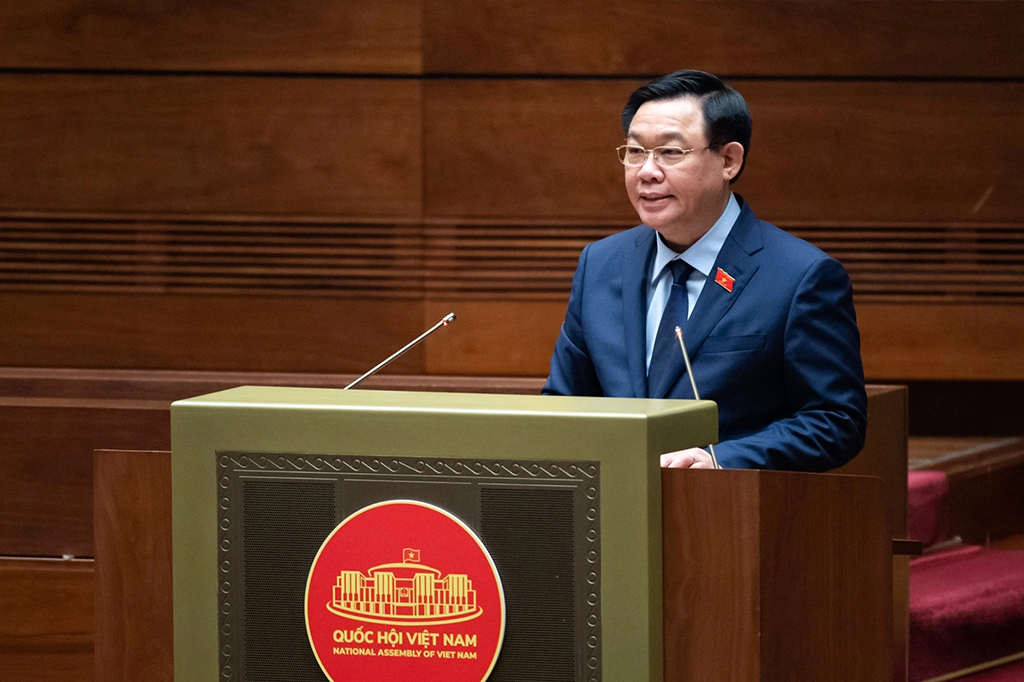
National Assembly Chairman Vuong Dinh Hue delivered a closing speech at the 6th session of the 15th National Assembly.
Appreciating the seriousness and receptiveness of Government members and industry leaders, the NA Chairman also pointed out through the question-and-answer session that the implementation of a number of resolutions and tasks is still slow, a number of contents and targets in the resolutions have not been completed, have not met requirements, are slow to change, have not been completely resolved or still have difficulties and problems, which need to be removed and completely resolved in the coming time.
The NA Chairman said that based on the results of the question-and-answer session, the NA will issue a resolution on the question-and-answer session at the end of the session. The NA Chairman asked the Government members and heads of sectors to fully absorb the opinions of the NA deputies, continue to resolutely, synchronously and comprehensively implement the NA resolutions on supervision and question-and-answer, focusing on promptly, fully and effectively overcoming the shortcomings and weaknesses in each area that have been pointed out.
Le Hiep
Salary reform for the entire non-state sector
Responding to the question of Deputy Van Thi Bach Tuyet (HCMC delegation) on the issue of implementing the salary reform policy and perfecting related policies to ensure consistency, Prime Minister Pham Minh Chinh affirmed: "Recently, salary reform has not been implemented due to resource difficulties, but the important thing is that we have tried to set aside salaries, increase revenue, reduce expenditure, and save on expenses. Currently, there is about 560,000 billion VND to spend on salary reform starting from July 1 to the end of 2026. In parallel with salary reform in the state sector, we also reform salaries in the non-state sector and enterprises, approaching each other. In addition, we will continue to perfect job positions; streamline payrolls associated with the effective and efficient operation of the political system, and save on expenses to ensure salary payments for workers".
Source link


![[Photo] The 4th meeting of the Inter-Parliamentary Cooperation Committee between the National Assembly of Vietnam and the State Duma of Russia](https://vphoto.vietnam.vn/thumb/1200x675/vietnam/resource/IMAGE/2025/9/28/9f9e84a38675449aa9c08b391e153183)

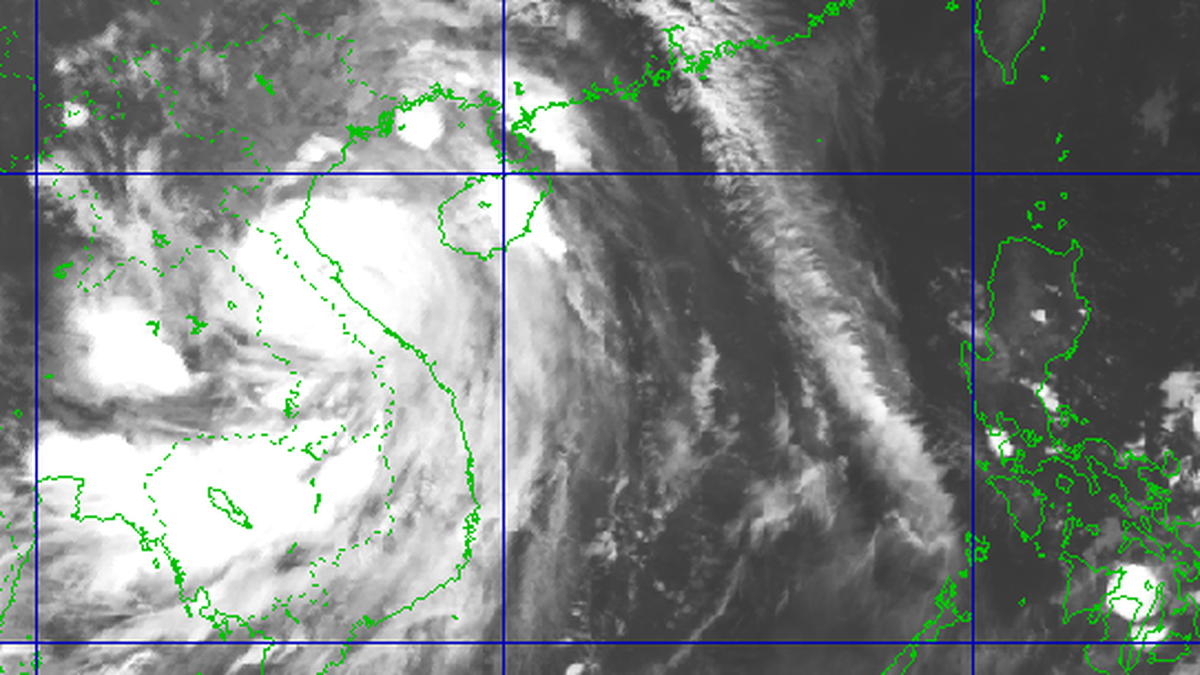
![[Photo] High-ranking delegation of the Russian State Duma visits President Ho Chi Minh's Mausoleum](https://vphoto.vietnam.vn/thumb/1200x675/vietnam/resource/IMAGE/2025/9/28/c6dfd505d79b460a93752e48882e8f7e)

![[Photo] Joy on the new Phong Chau bridge](https://vphoto.vietnam.vn/thumb/1200x675/vietnam/resource/IMAGE/2025/9/28/b00322b29c8043fbb8b6844fdd6c78ea)
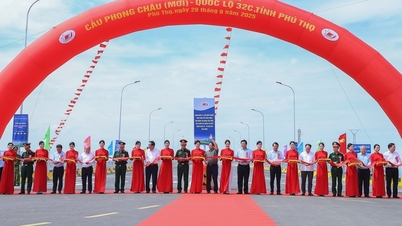

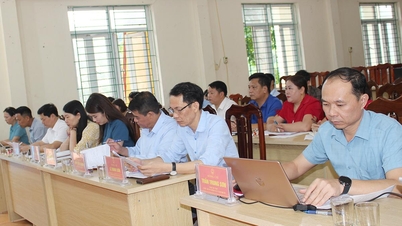

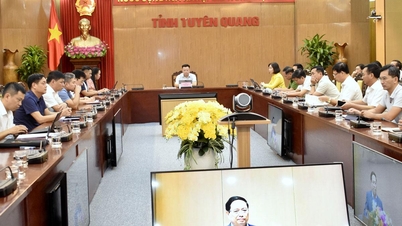





















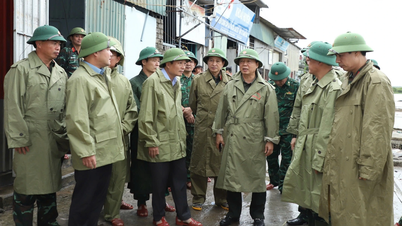
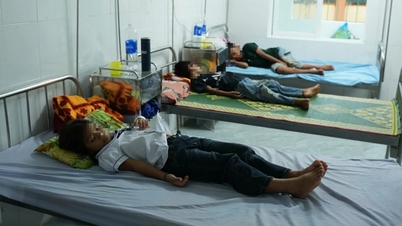


























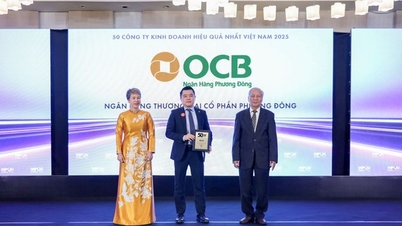


















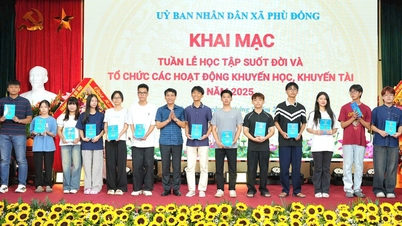
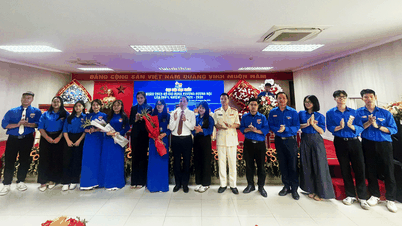
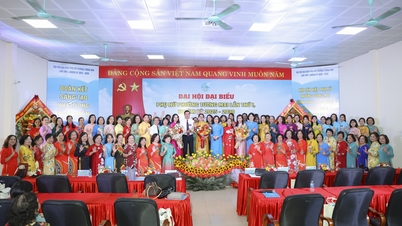












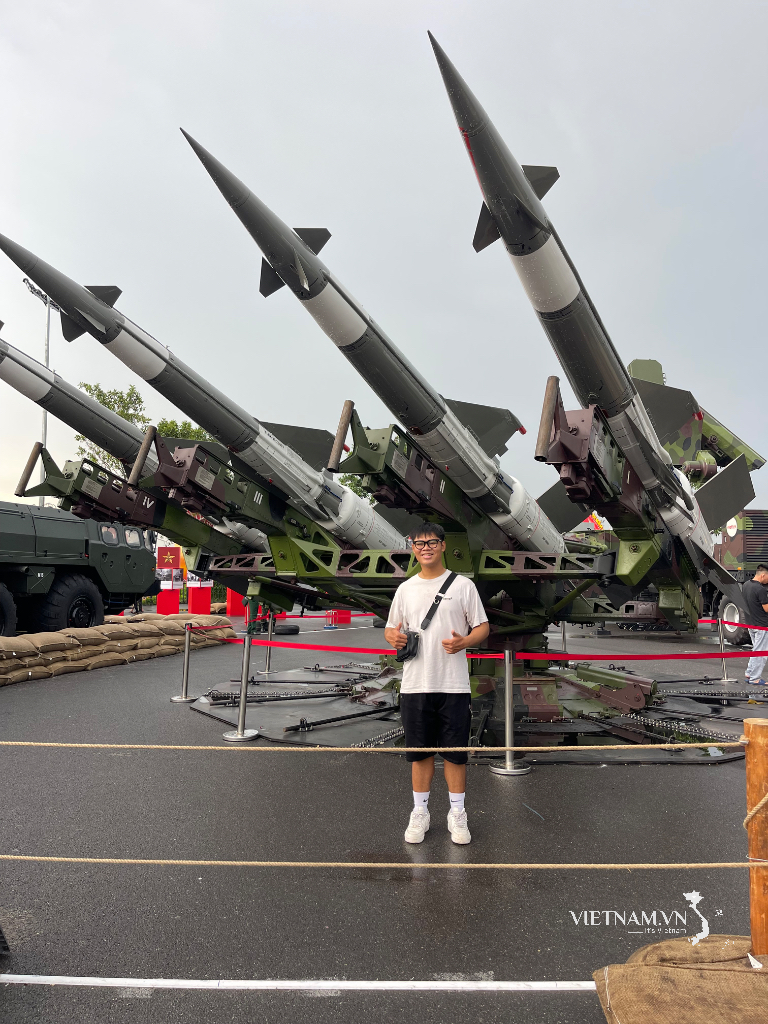

Comment (0)